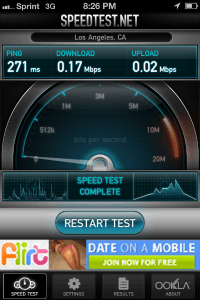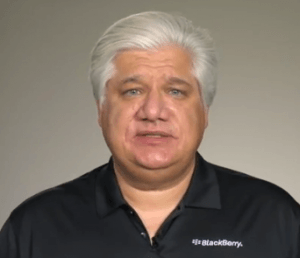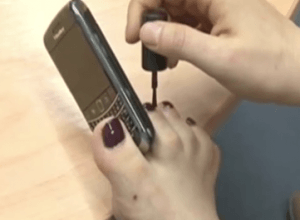Believe it or not, there are still some people out there who believe wireless broadband, as it exists today, is the future of high bandwidth communications in North America. Forget DSL, forget cable, forget fiber optics, they say. Technology like 4G and WiMax are “far superior” and cheaper.
To be fair, most of the people advocating the technology Sprint is in the process of abandoning have a vested interest in stopping fiber broadband projects. That is because while Verizon continues to sit on its hands expanding its excellent FiOS fiber-to-the-home service, some of the most aggressive fiber projects in the country are being built by your local town, city, or village government. It’s community-owned broadband, by and for the people in your own area. Large telecom interests that have always refused to deliver fiber service (or pretend to by using the word ‘fiber’ while not bringing a single strand to your home) have it in for potential competitors that are willing to provide the advanced fiber technology they won’t.
So why aren’t big phone and cable companies providing this level of service? In a word, money. Their shareholders don’t like the initial cost of deploying fiber to the home service, even though the technology is superior to what reaches your home today, is infinitely expandable without stringing new cables across town, and can support money-making applications developers and providers have not even dreamed of yet. With a pervasive lack of competition, there is nothing to overcome Wall Street’s conclusion that fiber doesn’t deliver fast enough profits to justify the initial expense.
When you take Wall Street out of the equation, especially in the telecom sector, the math works very differently. While the phone and cable company is probably telling you “no,” companies like Google are saying yes in Kansas City. So are municipally-owned rural co-operative phone and cable companies. Communities deciding broadband is too important to leave to the phone companies that deliver half their residents 1-3Mbps DSL and call it a day are saying yes to fiber optics as well.
Overseas, fiber networks are being built in countries in Eastern Europe where the economics would never make sense by Wall Street standards, yet residents (and perhaps more importantly new digital economy businesses) are now getting Internet speeds of 100Mbps or better. The next countries that could import good-paying American jobs might be Lithuania, Latvia, Poland, Romania, and Bulgaria.
So what does it take to adapt to this reality in North America? Providers that are willing to make a long term investment in fiber broadband — one that may take a few extra years to pay back, but will generate dividends like increased employment, capacity to provide better, faster service, more reliable networks, and earning a piece of the action powering North America’s new digital economy. If they won’t listen, tell your elected officials to support policies that promote additional competition and back community broadband expansion that can make all the difference between 3Mbps DSL and 100Mbps fiber.
[flv width=”640″ height=”372″]http://www.phillipdampier.com/video/Fiber is Better.flv[/flv]
Watch and share this video with friends and family to educate them about the infinite possibilities of fiber optic broadband and learn why it is superior to usage-capped wireless, slow speed DSL, satellite fraudband, or lopsided cable “High Speed Internet” broadband that delivers high speed in only one direction. (3 minutes)


 Subscribe
Subscribe







